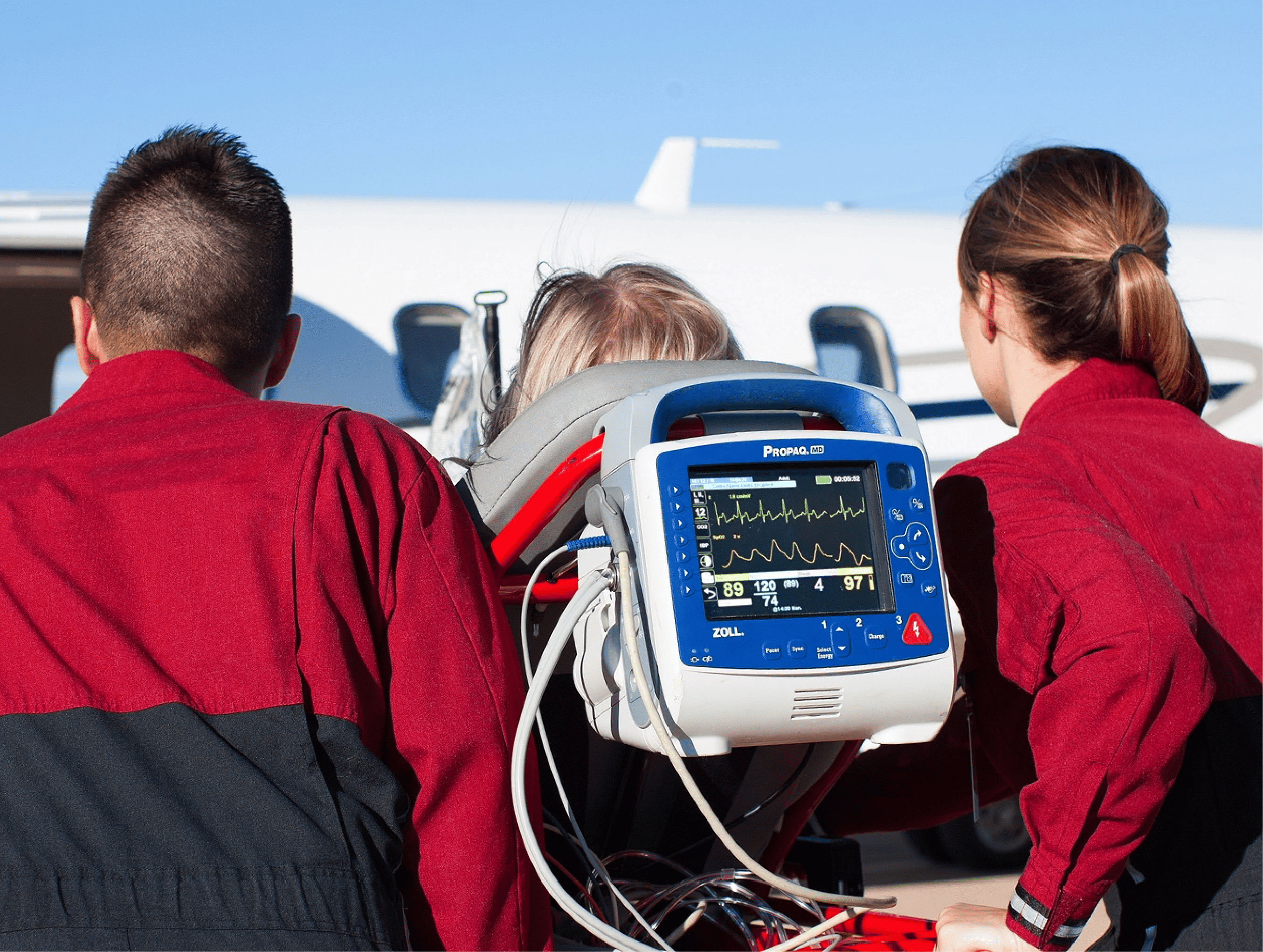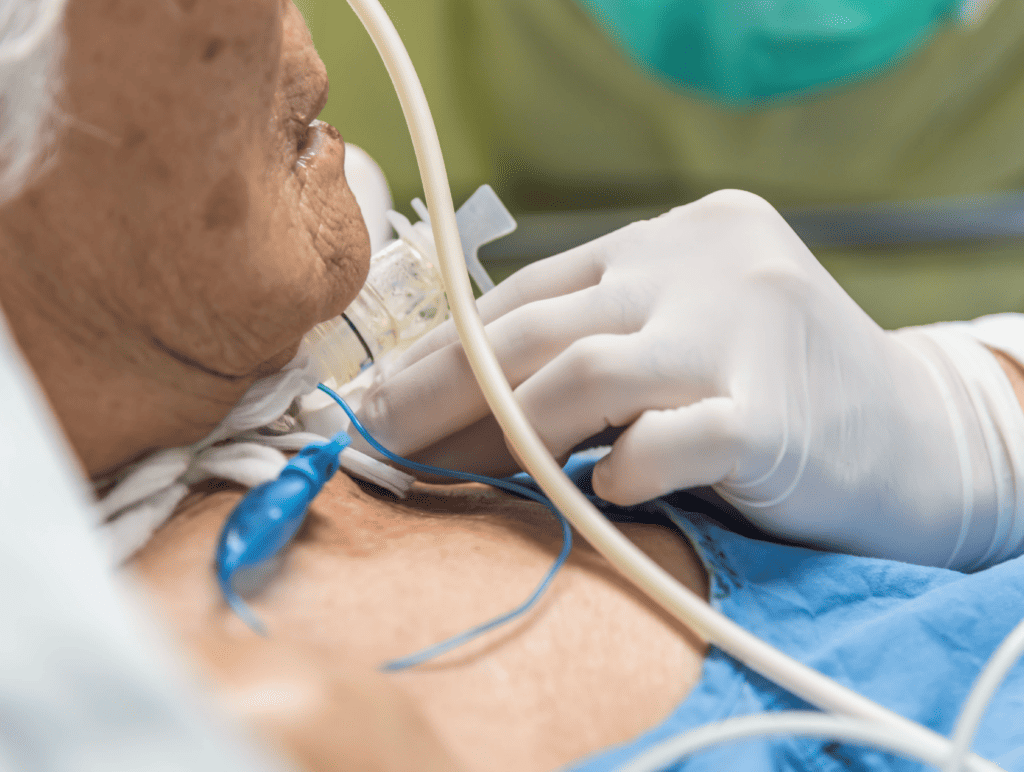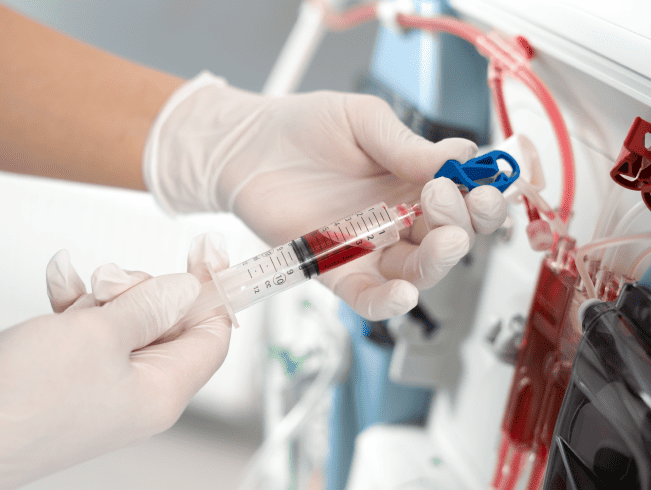Fly safely with an Air Ambulance
Myocarditis can weaken the heart and prevent people from flying. In case of acute symptoms immediate treatment is required, and in some cases where the right treatment isn’t available, patients must be flown by air ambulance to hospitals with better facilities.
An inflammation of the heart muscle (myocardium), the condition often results from viral or bacterial infections. In severe cases, the inflammation can cause significant damage to the heart, severely affecting its ability to pump blood to the different parts of the body.
Flying with Myocarditis is dangerous as it may lead to severe complications or even heart failure.
Severe myocarditis is a condition that can greatly impact the functioning of the heart and pose a significant threat to patients’ lives. Patients often require advanced cardiac care, which may not be available at their current location. In critical cases, where prompt medical intervention and specialized care are crucial for patients, Air ambulances are a reliable and efficient mode of transport for patients. Air ambulances bridge the gap by swiftly transporting patients to specialized cardiac centres, where they can receive optimal treatment. This is particularly crucial when patients are located in remote areas or in regions where the closest healthcare facility lacks the necessary resources.
The Role of Air Ambulances
Air ambulances are specialized aircrafts that offer a controlled environment, equipped with state-of-the-art medical equipment, and have a highly trained medical crew consisting of an intensive care trained physician, nurse, and/or paramedic with the capability and experience to stabilize and provide critical care to patients during transportation.
Depending on the patient’s condition the crew may also include heart specialists to better monitor the patient with myocarditis. When time is of the essence, air ambulances can cover vast distances quickly, ensuring patients reach specialized cardiac centers or hospitals with the necessary expertise to manage severe myocarditis.
Advanced Medical Equipment and Support
During air travel, the atmospheric pressure gradually falls with increasing altitude and the partial pressure of inspired oxygen falls correspondingly, leading to hypoxia in patients with weakened hearts.
Air ambulances can cater to the patient’s additional oxygen requirements by carrying oxygen cylinders. The aircraft is also designed to create a controlled environment that mimics the capabilities of a hospital ICU, a full range of drugs, and portable life support equipment like IV drug pumps, cardiac monitor, defibrillator, ventilator, pulse oximetry, and blood gas analyzer. This ensures that patients receive the necessary medical support, even during flight, reducing the risks associated with transporting critically ill individuals.
The Bluedot Advantage
Transporting a patient via an air ambulance requires coordination among healthcare professionals, ground ambulance services, and the receiving medical facility.
Flying with myocarditis requires careful planning and specialized care to ensure the safety and well-being of patients. Bluedot Air Ambulance recognizes these unique challenges and the expertise required in transporting patients with myocarditis by air.
Bluedot Air Ambulance works with only CAMTS/EURAMI certified air ambulance service providers. With a team of medical professionals trained to handle all emergencies and the UMeN worldwide network of highly trained medical doctors and nurses, Bluedot has a comprehensive approach to patient care and transportation.
Bluedot’s fully digital documentation of patient records ensures smooth handover to the receiving hospital’s medical team. Bluedot also liaises with over 100 embassies and consulates in the Middle East to facilitate the medical repatriation of patients back to their home countries.
By working closely with local authorities, healthcare providers, ground ambulance services, and medical facilities at the destination, Bluedot ensures that patients with myocarditis receive immediate, uninterrupted care upon landing.
This coordinated effort makes sure that all aspects of patient care, from ground transportation to in-flight health monitoring and management, are flawlessly integrated, providing peace of mind to both patients and their families.



